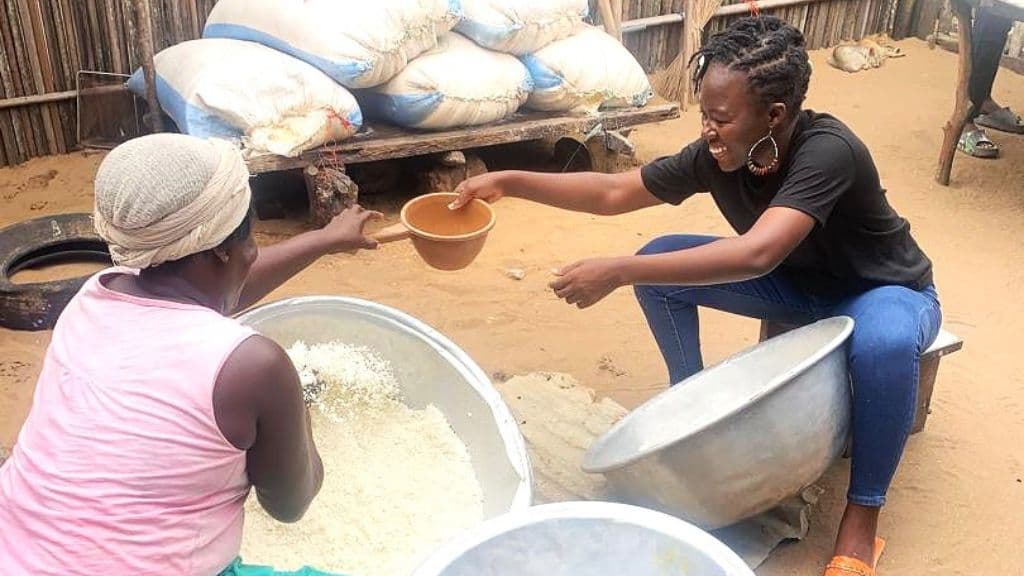What Makes Someone 'Skilled'? Who Defines 'Poverty'?

I didn't see poverty. Instead, I saw richness of a different kind. This realization struck me during my visit to Anokyi, a small coastal town in Ghana's Western Region.
I was there researching home food practices. And that's where I met someone I'll call Aunt Jane, a woman whose warmth and expertise would challenge my perspectives on skill and wealth.
Aunt Jane welcomed my research assistant and me with the kind of hospitality that makes you forget you're a stranger. We got acquainted really quickly.
As we spent the day with her, studying the community's food practices, and learning how to make akyeke, I was particularly captivated by her mastery of traditional food preparation. The way she explained the process of making 'akyeke' (a traditional cassava-based dish) into minute details revealed generations of knowledge passed down from mother to her, which she also passed to her children.
This experience made me question the conventional thought of "skilled labor." How could anyone label Aunt Jane as unskilled? Here's a woman who had mastered a complex culinary art, preserved cherished cultural knowledge and was actively passing these skills to the next generation. Her expertise wasn't certified by a formal institution. But it was certified by time, tradition and her community.
Some might look at Aunt Jane's life and see what's missing: no car for commuting, no expensive daily conveniences, none of the flushy things most people associate with success. But that perspective misses something crucial; it misses the complete alignment between her lifestyle and her environment. She didn't need those things to live a fulfilled life in her context.
That day in Anokyi taught me about different forms of wealth. While documenting the food practices and cultures of the Nzema people, I witnessed wealth in knowledge, wealth in community connections and wealth in the peace of knowing exactly who you are and what you're good at. It was a reminder that joy often resides in these simple moments of human connection and purpose.
Sometimes, we need to step outside our usual frameworks to recognize that wealth and poverty aren't always what they seem from the outside looking in.
Continue Reading

Job Search Communication 101: A View from Both Sides
Here's a friendly suggestion for job seekers, especially fresh graduates and early career professionals with still gaini...

Why I Stopped Reading 5 Books a Month And Started Growing Instead
I found myself caught in a common trap - reading one self-help book after another without making any meaningful changes ...